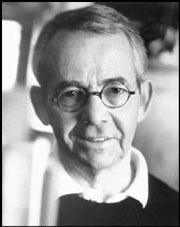IT’S A FREE COUNTRY
PERSONAL FREEDOM IN AMERICA AFTER SEPTEMBER 11
edited by Danny Goldberg, Victor Goldberg, and Robert Greenwald
(RDV/Akashic Books, $19.95)
TRAGEDY STUPEFIES thought and streamlines speech. A kind of simplicity, a homogeneity of utterance, belies a suffocating complexity of emotion, as though reality compels obedience to its own momentous depravity. The first words emanating from an atrocity—”I survived” and “I can’t believe it”—ring like a gunshot echoing into history. History’s real accounting, however, the stuff that will distill to posterity, stands patient on easy judgments. Processing tragedy—its effects, causes, and reverberations—is a job measured in decades, not weeks or years. So, one year later? Time hasn’t begun to tell the story of Sept. 11, 2001, though some parts of it demanded immediate attention: the pulling of bodies from rubble, for instance, or quelling panic with reassuring words. Aftermath is a messy business.
There is also, for some folks, this crucial matter of domestic vigilance, the stubborn and unglamorous guardianship of social and political values that could be decimated, Pogo-like, by the enemy that is us. The real victory of terrorism, its lasting legacy, lies in the steady, paradoxical erosion of American civil rights, all in the name of protection from and prevention of social ruin. Dubious moves, to say the least. Only now, a year later, are we starting to see the early outcomes of this battle at home, as appellate judges around the country strike down Attorney General John Ashcroft’s injunction of secrecy in the trials of immigrants who were rounded up and held incommunicado after the attacks. These are the first battles in terrorism’s indefinitely long war.
The contributors to It’s a Free Country: Personal Freedom in America After September 11, one of a spate of commemorative books, have taken up the cause of fighting a backlash that at once defeats logic and makes perfect sense. As with atrocity, this cause demands a simple, almost monolithic language. Published by independent RDV/Akashic Books out of New York, It’s a Free Country is unrepentantly political and, as such, is excruciatingly single-minded in its mission. “The fundamental fear expressed in this book,” writes Princeton professor Cornell West, “is that the present American obsession with safety may undermine freedom, that security could trump liberty, that democracy might be lost in the name of declaring war on terrorism.” What follows West’s introduction is an exhaustive argument for calm and sanity in the face of sustained hysteria.
The work kicks off with an encyclopedic reiteration, cobbled from numerous essays, of the history of U.S. wartime authoritarianism (from the Palmer Raids during World War I to the internment of Japanese-Americans in the ’40s) and ends on a personal note, with stunning testimonies from immigrants suffering harassment in the days following last year’s attacks. Legal experts, ACLU wonks, academics, and artists—including Steve Earle, Matt Groening, and Ani DiFranco—all weigh in on the short, nasty, and brutish work of Bush and co. as they try, quite indelicately, to shove the country’s judicial system on its head. Again, all in the name of preserving liberty.
EVEN AT ITS BEST moments, this book could never be characterized as an entertaining or pleasant read, nor is it meant to be. None of the essays partakes of the wistful sentimentality people might expect from more literary-minded works memorializing Sept. 11. It’s a Free Country is all about the information: facts, figures, and anecdotes delivered like legal briefs and intended to incite a fearful awareness. Much of the writing is repetitive, mantralike, as though the work of keying us to imminent political dangers is a trick of rote and routine. The going can be tedious and cumbersome, though necessarily so: The politics of vigilance aren’t a joyride, and arousal from demon apathy is sometimes just an issue of convincing good hearts that the threat is serious.
Not that it’s all drudgery. Certain chapters blaze with energy and smarts, and a handful of essays rise above rah-rah rhetoric to achieve a kind of patriotic luminosity of purpose. California Sen. Tom Hayden thoroughly deconstructs the political cant behind Bush’s War on Terrorism with writing that is honest, incisive, and startlingly incendiary. Lefty historian Howard Zinn is typically brief and brilliant in his survey of wartime abuses of civil liberties, and Congressman Dennis Kucinich’s “A Prayer for America” strikes an Orwellian chord in its canny condemnation of American foreign policy and domestic bad faith, taking particular aim at the U.S. Patriot Act, a piece of legislation that smugly craps all over the Bill of Rights.
Strong medicine, this book. The crucial message—that the choice between “safety” and “freedom” in post-Sept. 11 America is not only not absolute but also based on a rather facetious premise—is one that remains obscured by the unrelenting call for unity against an invisible, ubiquitous enemy. “Reason is the first casualty of war,” writes Ramona Ripston, a regional executive director for the ACLU. And through testimony, evidence, argument, and sheer volume, this book seeks to rehabilitate, if not restore, some measure of that beleaguered attribute.






